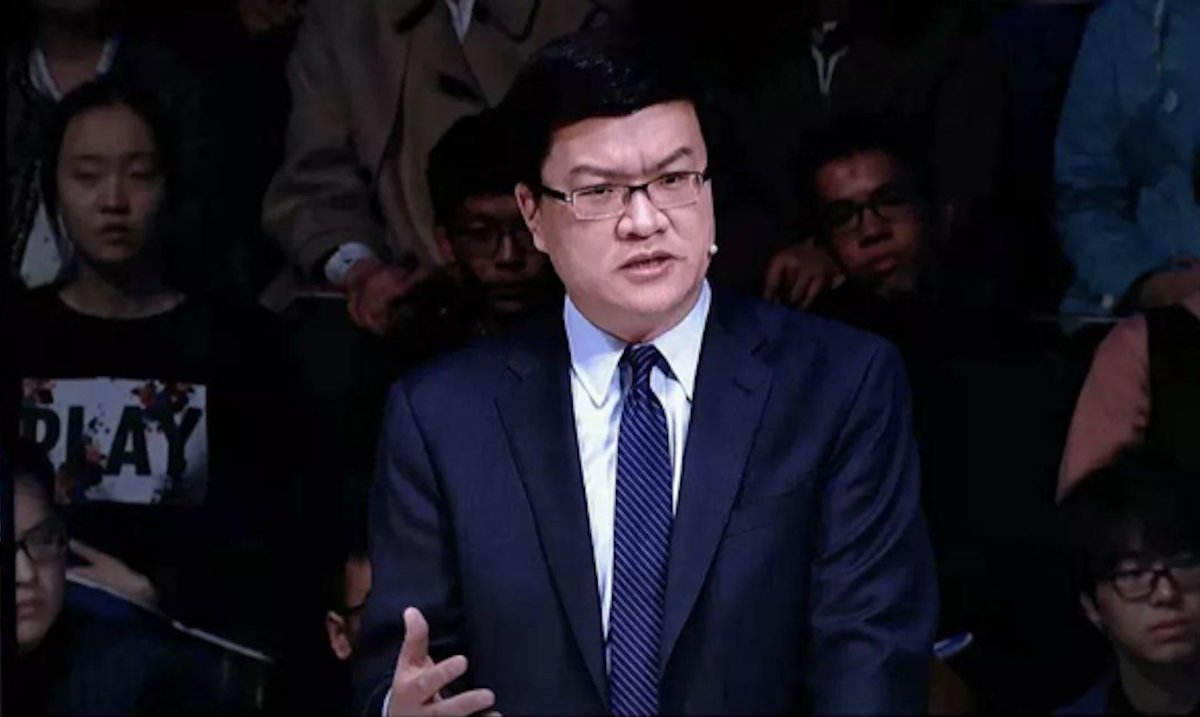
How to protect #China from #Russia-like sanctions?
This question continues to be debated by Chinese analysts.
▫️ Ye Yan's solution: Beijing should build an international alliance of businesses to circumvent and neutralise Western #sanctions
A THREAD 🧵
sinification.substack.com/p/countering-w…
This question continues to be debated by Chinese analysts.
▫️ Ye Yan's solution: Beijing should build an international alliance of businesses to circumvent and neutralise Western #sanctions
A THREAD 🧵
sinification.substack.com/p/countering-w…
🔹About the author: Ye Yan (叶研) is currently a senior economist at the international R&D arm of China National Petroleum Corporation (CNPC) and an adjunct professor at China’s Southwest University of Political Science & Law. 

🔹Some background: China was taken aback by the scale of Western sanctions on Russia following the outbreak of the #UkraineWar. Government officials and experts have since been assessing how best to protect their country from such a doomsday scenario.
theguardian.com/world/2022/may…
theguardian.com/world/2022/may…
🔹Summary of Ye's proposal:
1⃣ The increasing use of economic sanctions (both primary and secondary) and #export controls by the #USA and its allies pose a threat to China’s economic development.
1⃣ The increasing use of economic sanctions (both primary and secondary) and #export controls by the #USA and its allies pose a threat to China’s economic development.
2⃣ The internationalisation of the #RMB and boosting the development of China’s #tech industry are effective countermeasures that need to be pursued, but they will not protect China in the short-to-medium term.
sinification.substack.com/p/taiwan-elect…
sinification.substack.com/p/taiwan-elect…
3⃣ Acknowledging that a power gap still exists between #China and the US, #Beijing should avoid adopting tit-for-tat responses to US sanctions when it can, otherwise it risks harming itself.
4⃣ Ye’s solution: Building an international alliance of businesses (hereafter, CES network) that could both circumvent and neutralise the impact of Western #sanctions.
5⃣ Members: Companies that have already been sanctioned as well as those businesses that are after a “risk premium” and that are not afraid of being sanctioned.
6⃣ Dynamics: The more the #West uses economic sanctions, export controls and other coercive measures, the more businesses from across the world will be encouraged to join such a network and thus the more powerful this network would become.
7⃣ Advantages:
▫️ The CES network would be an inter-business, not an inter-country, alliance. This would help avoid tedious intergovernmental negotiations and the risk of diplomatic clashes.
▫️ The CES network would be an inter-business, not an inter-country, alliance. This would help avoid tedious intergovernmental negotiations and the risk of diplomatic clashes.
▫️ The network would help shore up #supplychains, reduce the isolation felt by sanctioned businesses and provide new opportunities for Chinese businesses to develop and prosper through trading with sanctioned entities both within China and across the world.
▫️ It would help enhance China’s global economic and political influence.
▫️ The constitution of a CES network could become a “bargaining chip” when negotiating with the #UnitedStates and other Western countries.
▫️ The constitution of a CES network could become a “bargaining chip” when negotiating with the #UnitedStates and other Western countries.
▫️ The establishment of such a network could help prevent a complete #decoupling of the US and Chinese economies.
▫️ Success of the CES network would blunt #Washington’s sanctions weapon and could even lead to the collapse of the #USA's global political and economic hegemony.
▫️ Success of the CES network would blunt #Washington’s sanctions weapon and could even lead to the collapse of the #USA's global political and economic hegemony.
8⃣ Disadvantages:
▫️ It would take time to develop and would initially require the strong support of governments from across the world.
▫️ Its emergence could precipitate the formation of two opposing camps. This would be the direct consequence of 🇺🇸's own actions, not 🇨🇳's.
▫️ It would take time to develop and would initially require the strong support of governments from across the world.
▫️ Its emergence could precipitate the formation of two opposing camps. This would be the direct consequence of 🇺🇸's own actions, not 🇨🇳's.
9⃣ Additionally:
▫️ #China's non-sanctioned multinational companies should be encouraged to comply with US sanctions, provided that by doing so they are not harming China's core national interests.
▫️ #China's non-sanctioned multinational companies should be encouraged to comply with US sanctions, provided that by doing so they are not harming China's core national interests.
🪧Quote:
"After the formation of a CES network, the US will in a sense be ‘digging its own grave’ by [imposing] unilateral economic sanctions.”
"After the formation of a CES network, the US will in a sense be ‘digging its own grave’ by [imposing] unilateral economic sanctions.”
📣 For more insights from Chinese think-tank analysts and scholars on a range of international topics, don't forget to subscribe:
sinification.substack.com
sinification.substack.com
• • •
Missing some Tweet in this thread? You can try to
force a refresh









